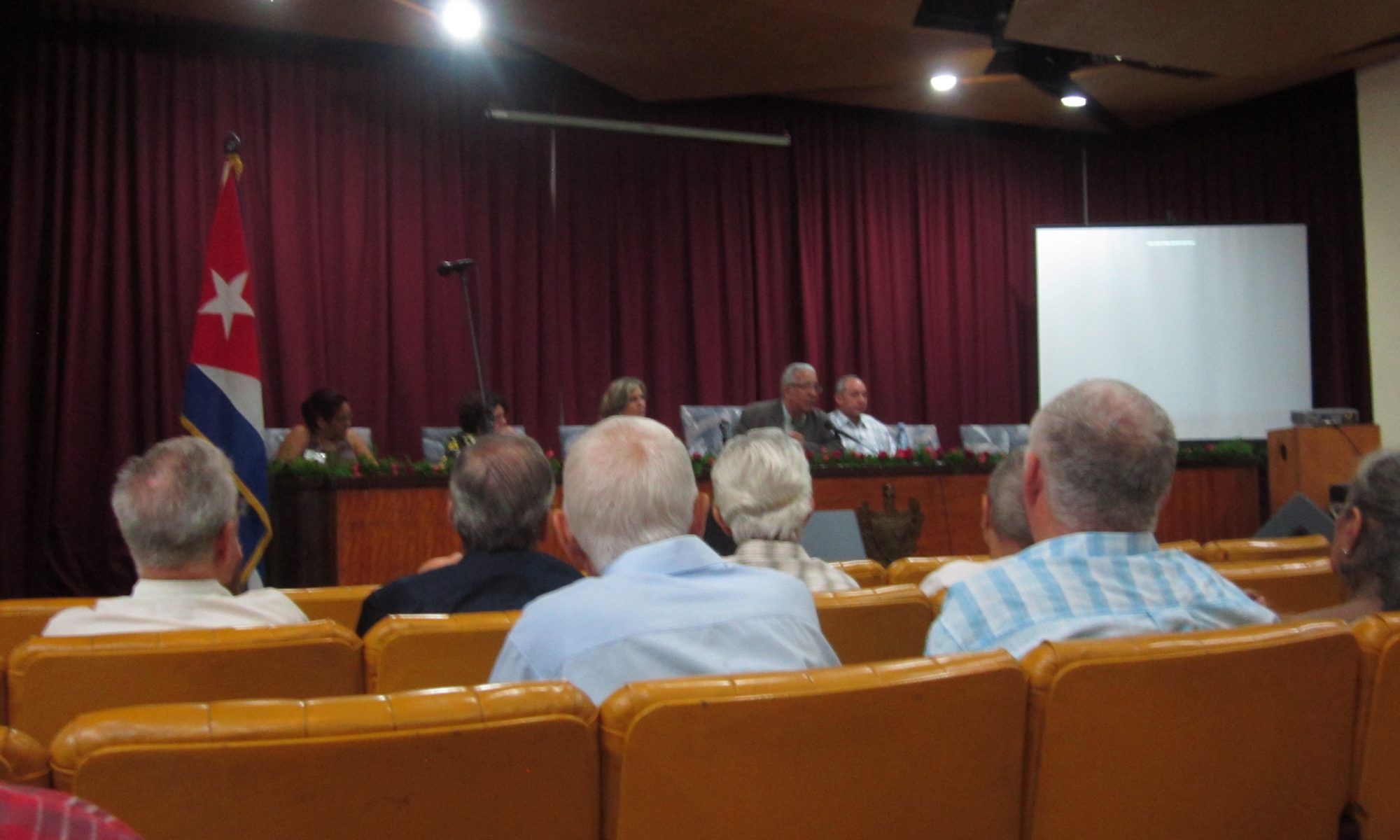On 15 October 2012, I happened to have stopped by Cuba’s Biblioteca Nacional de Cuba in order to thank my colleagues in the Cuban bibliographic division for their help in 2005 conducting months of research on the post-1959 press. The book that research helped me create had just come out. To my delight, I chose the day on which the library’s recently appointed director and fellow historian, Dr. Eduardo Torres-Cuevas, presented a report to Cuban historians on the massive (reportedly nine- million-dollar) restoration that he had overseen in the course of the previous three years. Among other examples, Dr. Torres Cuevas explained that one of his first priorities was to hunt down the thousands of books and other items that staff had reported “lost” but had simply not re-shelved properly in order to avoid having to walk up the stairs when the elevators stopped working or when the library’s dumbwaiter broke. To expressions of joy and sighs of relief, he then told us that 90% of the “lost” items had been found. He also said that much of the library’s staff responsible for the lamentable conditions of collections and legendarily atrocious service were let go. Using a Power Point, Dr. Torres Cuevas also reported on the major overhaul of the library’s bathrooms, which were so extremely dirty after years of neglect that few if any workers or patrons ventured down to the basement to use them. (Most had preferred to walk the distance to the local bus terminal instead!) The clarity, honesty and celebratory tone of Dr. Torres Cuevas’ report and the opportunity to ask questions which followed indicated, for many, that a new era for intellectual exchange and freedom of information in Cuba was taking hold. However, by 2020, Dr. Torres Cuevas had been replaced. Two years later, Cuba’s National Union of Historians awarded General Raúl Castro with the Historian of the Year Award. Together, these two acts speak to where Cuba’s historical academy stands today.
